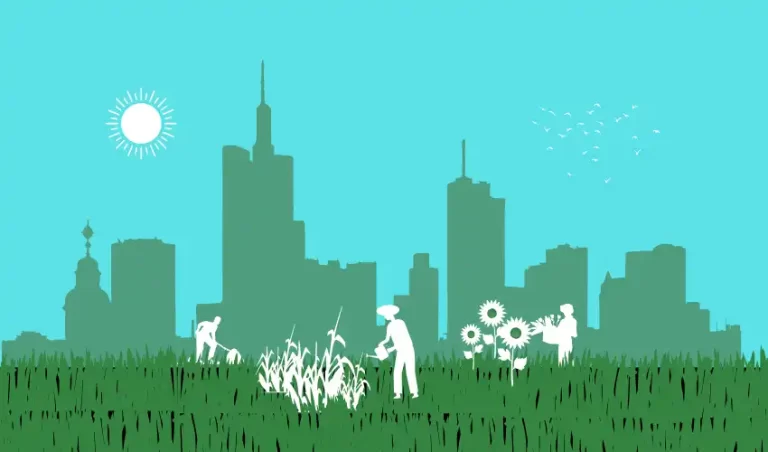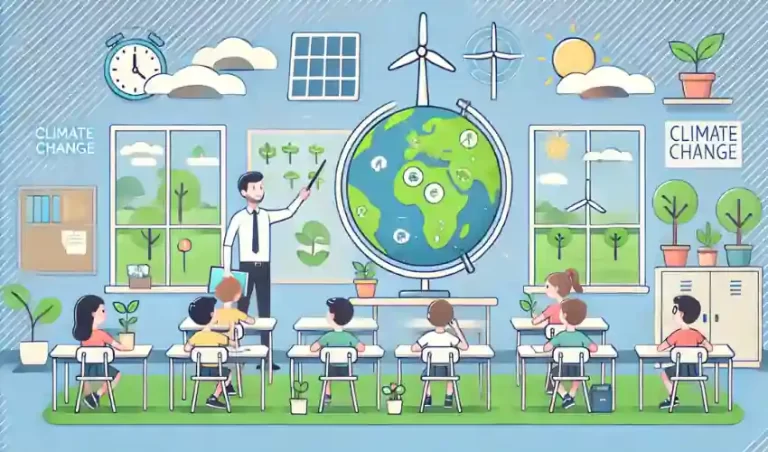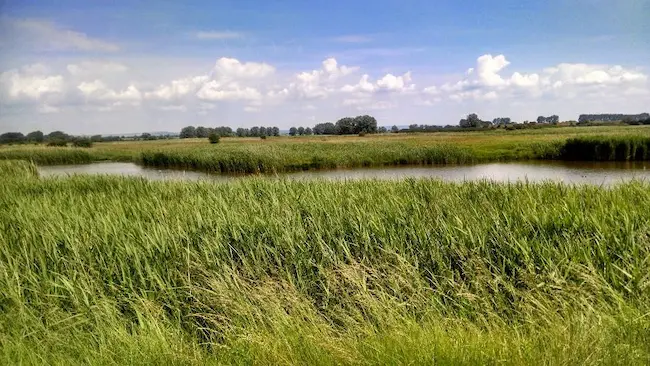20 Practical Sustainability Ideas for Schools
As the world grapples with environmental challenges, schools have a unique opportunity to lead by example. Integrating sustainability into school operations not only helps the environment but also educates students on the importance of eco-friendly practices.
Here are some practical sustainability ideas for schools that are easy to implement and can make a significant impact.
1. Recycling Programs

A robust recycling program is essential for reducing waste. Schools can set up recycling stations for paper, plastic, glass, and e-waste.
Educating students and staff on the importance of recycling and how to properly sort materials can enhance the program’s effectiveness. Moreover, schools can recycle old textbooks and supplies, reducing the need for new materials.
Learn more about starting a school recycling program from Recycle Now or Recycle for Schools.
2. Green Transportation
Promoting green transportation options is crucial for reducing the school’s carbon footprint.
Encouraging biking, walking, carpooling, and the use of public transport can help reduce traffic congestion and air pollution.
Schools can support these efforts by providing bike racks and safe paths for cyclists and pedestrians.
In the US, the National Center for Safe Routes to School is a great resource for guidance, or for UK based schools, Sustran is another recommended source.
3. Water Conservation

Water conservation is another critical area for schools to address.
Installing low-flow faucets and toilets can significantly reduce water usage. Additionally, implementing rainwater harvesting systems can provide an alternative water source for irrigation and other non-potable uses.
Educating students about the importance of water conservation can foster a culture of sustainability.
For tips and guidelines, refer to Water Sense or Water Wise.
4. Eco-friendly Supplies
Switching to eco-friendly supplies is a simple yet effective way to promote sustainability.
Schools can purchase supplies made from recycled or sustainable materials, such as recycled paper, biodegradable pens, and reusable containers. Check in with your suppliers to find out what options are available in your area.
Encouraging students to use the eco-friendly products can help spread this positive approach beyond the school into the local community.
5. Environmental Education
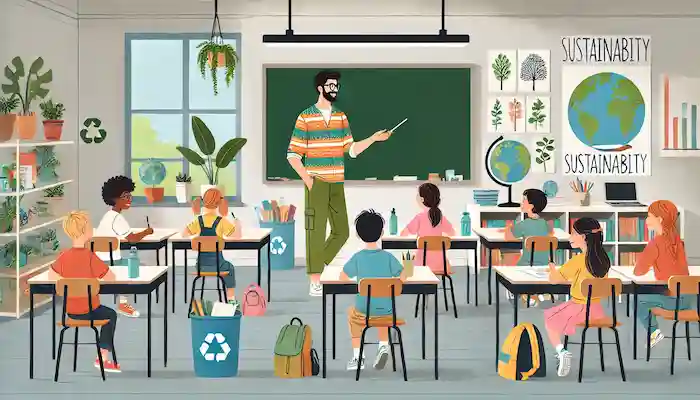
Incorporating sustainability topics into the curriculum is vital for raising environmentally conscious students.
Schools can include environmental science within their program, organise eco-friendly projects, and run forest school days. These initiatives can inspire students to adopt sustainable practices in their daily lives.
For curriculum ideas and resources, the National Environmental Education Foundation is a useful resource for US-based schools, or the UK-based Eco-Schools is also a great resource.
6. Sustainable Landscaping
Sustainable landscaping practices can enhance the school’s environment and promote biodiversity.
Using native plants, creating rain gardens, and maintaining green spaces are effective ways to support local ecosystems. These practices also reduce the need for water, fertilizers, and pesticides, making the school grounds more sustainable.
More information can be found at the Green Building Council] or from the Royal Horticultural Society.
7. Composting
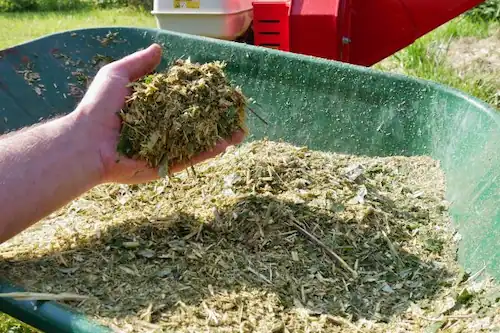
Composting organic waste from cafeterias and gardens is an excellent way to reduce landfill contributions.
Schools can start a composting program to convert food scraps and garden waste into nutrient-rich compost for school gardens. This not only reduces waste but also supports sustainable gardening practices and improve soil health.
Resources on composting can be found at the EPA’s Composting At Home page or UK-based Garden Organic.
8. Healthy School Meals
Offering healthy, sustainable meal options is another way schools is a great way to promote sustainability.
Providing locally sourced, organic, and plant-based meals can reduce the school’s carbon footprint and support local farmers. Schools can also reduce food waste by implementing portion control and composting leftover food.
For more information on sustainable school meals, visit Farm to School, or the UK-based Food for Life.
9. Zero Waste Events

Planning school events with minimal waste is an excellent way to demonstrate commitment to sustainability.
Using reusable or compostable materials for events, avoiding single-use plastics, and encouraging attendees to bring their own reusable items can significantly reduce waste. Schools can also implement recycling and composting stations at events.
10. Digital Learning
Reducing paper waste is a good sustainability measure and a quick win!
Schools can promote digital learning by encouraging the use of e-books, online resources, and digital assignments. This not only reduces paper waste but also enhances learning opportunities for students.
11. Community Partnerships

Collaborating with local environmental organisations can provide valuable resources and support for sustainability initiatives.
Schools can partner with these organisations for projects, workshops, and learning opportunities. These partnerships can also help schools stay updated on best practices in sustainability.
For potential partnerships, Green Schools Alliance in the US, or UK-based Learning through Landscapes are good starting points. You can also check in with your local government council, many of whom try to support community partnerships where possible.
12. Sustainable Purchasing Policies
Establishing guidelines for purchasing sustainable and ethically sourced products can further enhance a school’s commitment to sustainability.
Schools can prioritise products that are recyclable, made from renewable resources, or have minimal packaging.
These policies can reduce the school’s environmental impact and promote responsible consumption.
13. Eco-friendly Cleaning

One of the key products you can often procure more sustainably are the cleaning products in use.
Using non-toxic, biodegradable cleaning products is essential for maintaining a healthy and sustainable school environment.
These products reduce exposure to harmful chemicals and are less damaging to the environment. Schools can also educate staff and students on the benefits of using eco-friendly cleaning products.
14. Sustainable Clothing
Encouraging uniform recycling programs and second-hand clothing exchanges can reduce the environmental impact of clothing production.
Schools can organise clothing drives and swap events to promote the reuse of school uniforms and other clothing items.
Often students will grow out of uniforms before they wear them out, so these sorts of activities can give the clothes a second lease of life. This in turn can also help the families of students save plenty of money on uniforms, which can of course be on the pricey side to buy new.
15. Energy Audits

Regularly conducting energy audits can help schools identify and address inefficiencies.
These audits can pinpoint areas where energy is being wasted and suggest improvements to reduce consumption. Schools can use the findings to implement targeted energy-saving measures.
Resources on energy audits can be found at Energy Star or Carbon Trust.
16. Energy Efficiency Initiatives
Energy consumption is a major cost for schools. Switching to energy-efficient lighting, such as LED bulbs, and implementing energy-saving practices, like turning off lights and computers when not in use, can significantly reduce energy consumption.
Additionally, by installing solar panels, schools can harness renewable energy, reduce electricity costs, and lower their carbon footprint.
For more information on energy efficiency in schools, take a look at the U.S. Department of Energy’s Energy Saver Guide or UK-based Energy Saving Trust.

17. Solar Water Heating
Once you have a measure of your energy use through auditing, installing solar water heaters is a great way to reduce reliance on gas for water heating, and lower energy costs.
These systems use solar energy to heat water, providing an efficient and eco-friendly alternative to conventional water heaters.
18. Green Roofs
Installing green roofs is an innovative way to promote sustainability.
Green roofs reduce heat-gain, support management of rainfall, and provide educational opportunities for students.
They also enhance the school’s aesthetic appeal and contribute to biodiversity by providing habitats for various plants and animals. Green roofs can improve air quality and reduce energy costs by providing natural insulation.
Note, they can be heavy, so you have to be sure to get the structure fully assessed first to make sure it can take the wait.
Source such as the Green Building Council and Living Roofs will be helpful for further information.
19. Green Certifications
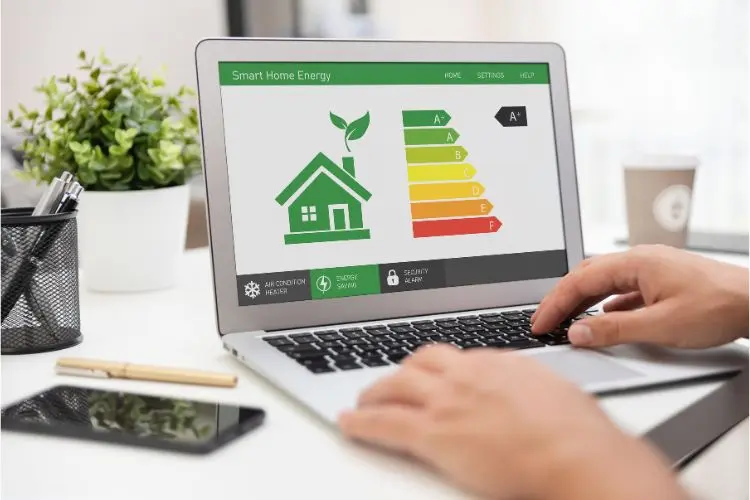
Aiming for green certifications, such as LEED (Leadership in Energy and Environmental Design), can help schools demonstrate their commitment to sustainable building use.
These certifications require schools to meet specific environmental standards, ensuring that their buildings and operations are eco-friendly.
Check out our article on Sustainability Standards for further information.
20. Student Involvement
Engaging students in sustainability initiatives is crucial for their success.
Schools can create student-led committees to brainstorm and implement sustainability ideas. These committees can organise events, lead campaigns, and monitor the school’s progress in achieving its sustainability goals.
A Sustainable Future For Your School

Implementing these sustainability ideas can help schools significantly reduce their environmental impact while educating the next generation on the importance of sustainability.
By adopting energy-efficient practices, promoting recycling and composting, conserving water, encouraging green transportation, and integrating environmental education into the curriculum, schools can lead the way in creating a more sustainable future.
Additionally, by involving students in these initiatives and partnering with local organisations, schools can foster a culture of sustainability that extends beyond the classroom.
Here at Greener Insights we offer regularly updated posts on various topics that you may find helpful to support taking sustainable action. These include:
Teaching Sustainability to Students: Guide and Activities
20 School Sustainability Project Ideas to Engage Students
Sustainable Gardening: 10 Simple Tips To Support Nature
20 School Project Ideas to Teach About Climate Change
We also have plenty of other related posts below.
Lastly, we’d love to hear how you get on improving sustainability at your school. Let us know in the comments section below!


